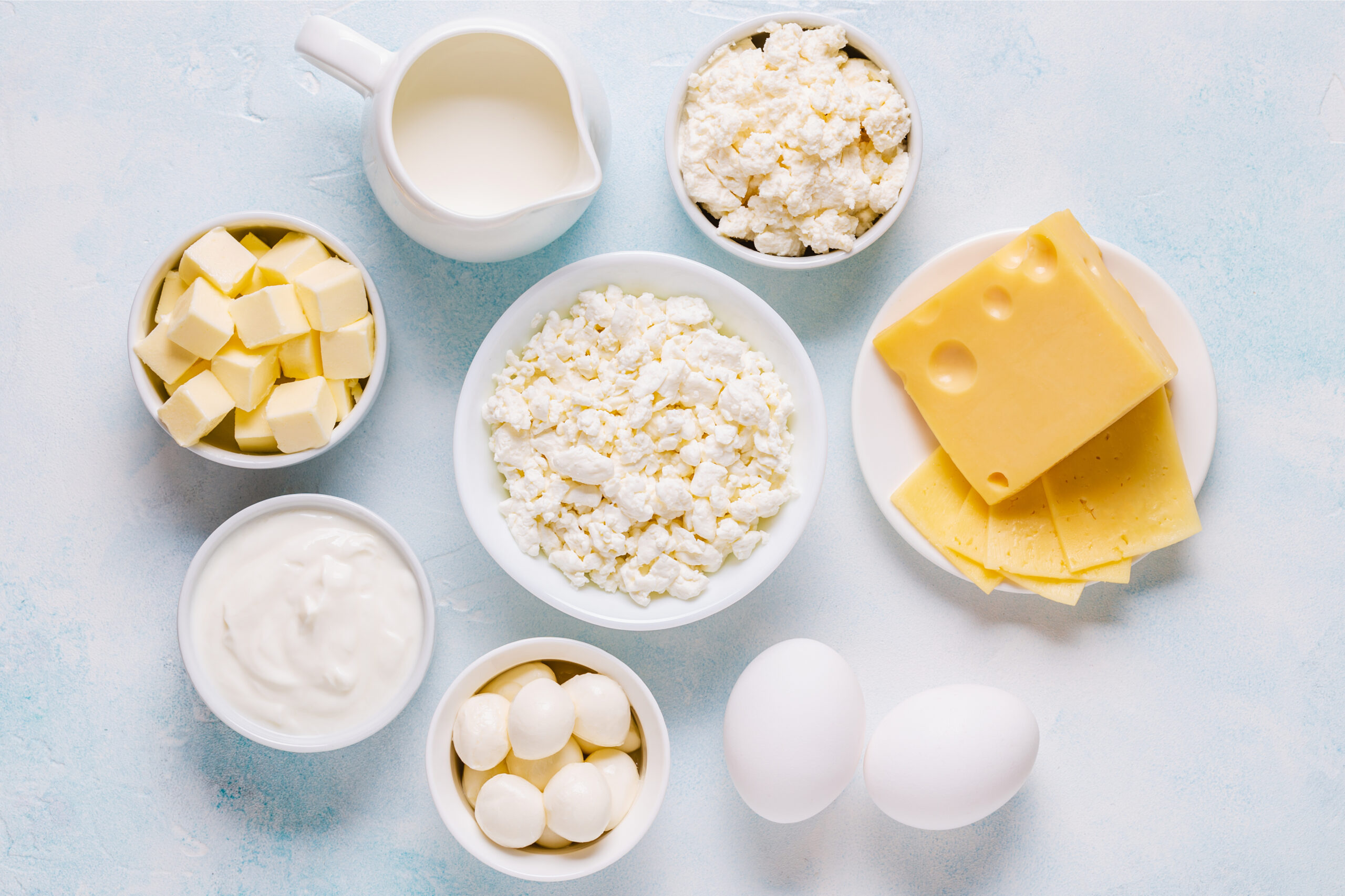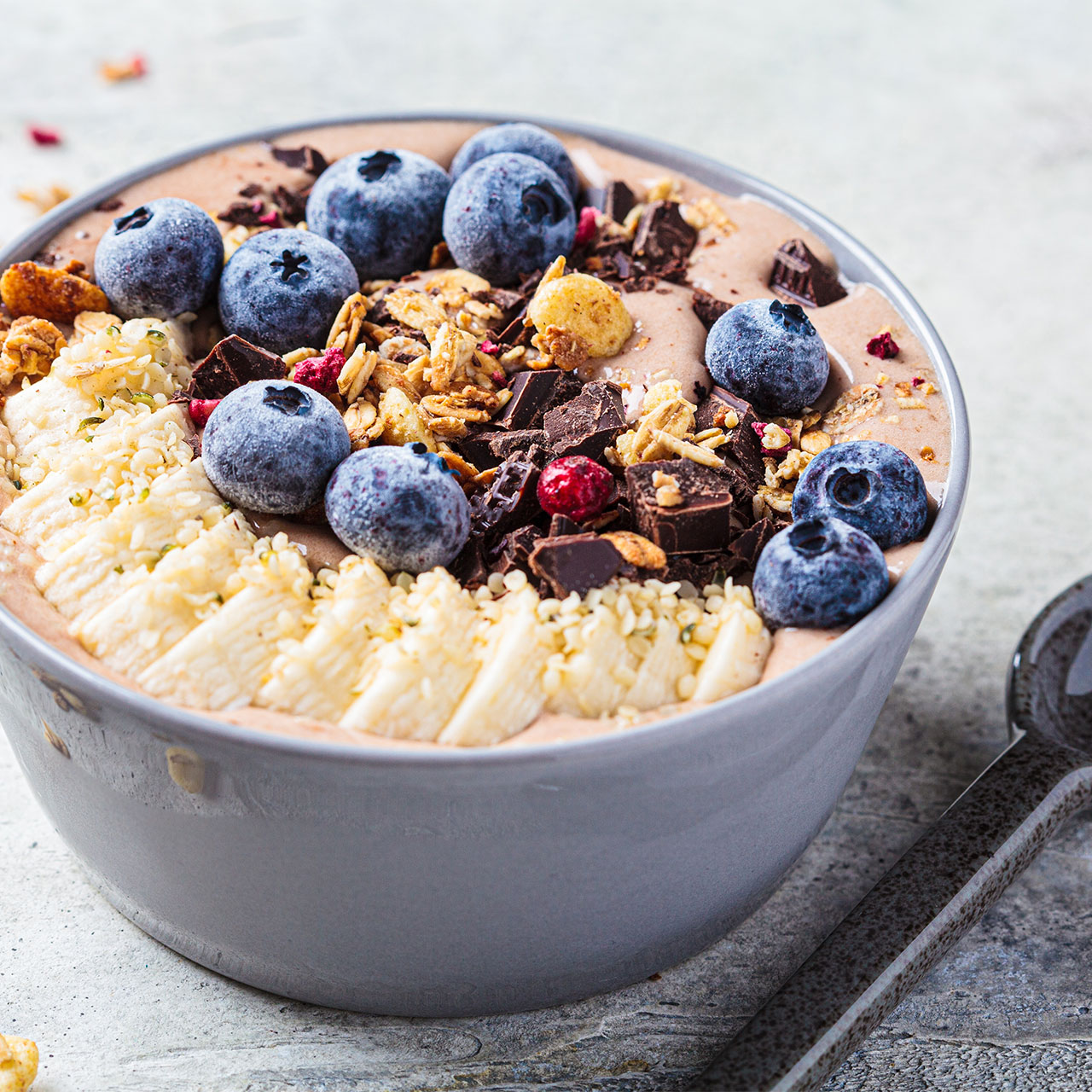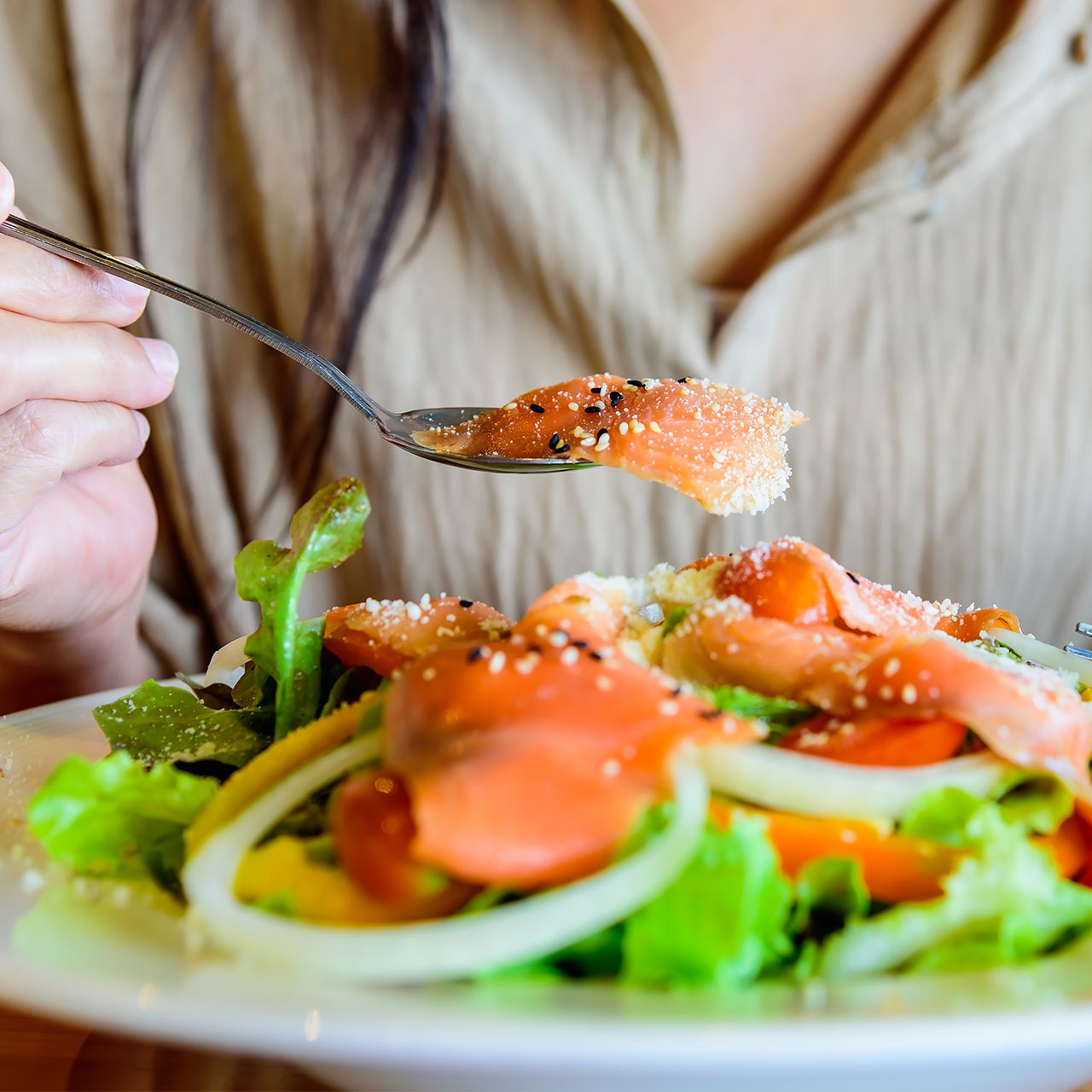This post has been updated since it was originally published on June 9, 2021.
Eggs are a vitamin and protein-rich breakfast option for anyone on a diet (or a budget), and most of us know to pair them with veggies or low-fat protein like turkey bacon. But did you know that cooking them with certain ingredients add more unhealthy fat than is necessary? Cooking eggs with butter and frying eggs in general—whether it be sunny side up, over-easy, or over-hard, may do more harm than good to this wonderful superfood. Keep reading as our health experts weigh in.
Worst Ingredients To Add To Eggs
Oil
“An exorbitant amount of butter, oil, or some form of fat is required to fry eggs on the stovetop,” Trista Best, MPH, RD, LD, of Balance One Supplements explains. “Typically the most inexpensive, highest saturated fat, oil is used. This adds much more unhealthy fats to a relatively healthy food through the cooking process alone,” she warns.
No, it’s not adding cheese to your eggs, like in an omelet, that is so bad. It’s the simple oil they’re cooked in for frying. It might not be a surprise to many of you, but it’s a good reminder for anyone trying to watch their weight.


Butter
Similarly, naturopath and general family practitioner Dr. Yelena Deshko believes that the healthiest way to cook eggs is to avoid adding saturated fats. She explains, "The healthiest cooking methods do not add extra oils or butters (as eggs are naturally high in saturated fats). Cooking processes such as boiling, poaching or baking help you reap the nutritional benefits of eggs without increasing the fat and calorie content."

Milk and Cheese
Additionally, Dr. Erin Hendriks, board-certified physician and functional medicine practitioner at Salvo Health, suggests to avoid dairy products such as milk and cheese. She notes, "Most people develop some level of lactose intolerance as they age. When lactose is not digested properly, it moves into the large intestine and causes gut symptoms like gas, bloating, diarrhea, and nausea. It can also disrupt the microbiome as the bacteria in the gut start to eat the undigested lactose."
"If you can’t imagine an omelet without cheese, opt for hard, aged cheeses, like parmesan and cheddar," she tells us. "With these types of cheeses fermentation is an essential part of the cheese-making process, so much of the lactose is already digested by bacteria."

So, what should you have instead?
Trista Best tells us, "Poaching eggs is a healthier way of getting a similar form of egg without the added fat and calories. This form of cooking requires the preparer to bring a pot of water to a boil and simply crack a whole egg into the rolling boil."
Dr. Hendriks adds, "Instead of using processed vegetable oil or butter to cook your eggs, choose an oil with healthier fats such as olive oil. Experiment with different spices such as cumin, paprika, and oregano—all of which have antioxidant and anti-inflammatory properties." On top of that, you can also "consider adding a tablespoon of ground flax seeds to your eggs or omelet for a boost of fiber and omega-3 fatty acids." She emphasizes, "And most importantly, don’t forget to add the vegetables!"
And, voila! "Within just a few short minutes, a cooked egg emerges maintaining its health qualities without added ingredients that can be damaging to the heart."


























